"It's about finding new ways to provide economic impetus in this structurally weak region characterised by poverty": Ueli Baruffol on the vision of "Kardianuts" in Colombia.
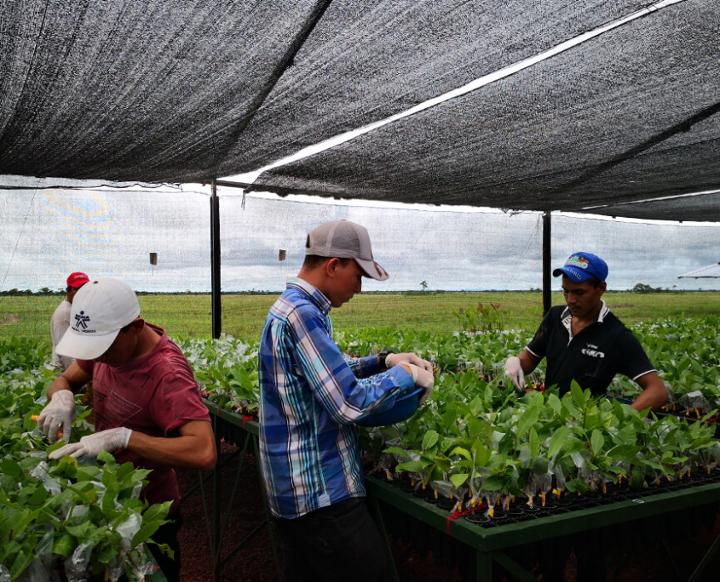
A few weeks ago, Ueli Baruffol, founder of Pakka, returned from his one-year stay in Colombia. In early summer 2018, he packed his bags to set up a cashew value chain in Colombia. The company, called "Kardianuts", is ambitious: In a few years' time, 2500 hectares of cashew plants, including a processing factory, should provide a livelihood for numerous families in rural Vichada in north-east Colombia.
Interview
Zurich, 5 August 2019
"Pakka": Ueli, how would you describe the "Kardianuts" project?
Ueli: "Kardianuts" involves setting up a sustainable model farm for organic and Fairtrade cashews in rural Colombia. Our vision is to create economic value and thus jobs in a very structurally weak region. The aim is to grow a mixed crop of cashews and other crops such as peanuts, pineapple and mango on 2500 hectares. This will not only improve the quality of the soil, but also create additional income opportunities. In a second step, this experience will be passed on to small farmers and they will be helped to set up their own farms of around 100 hectares. Our idea is for "Kardianuts" to provide the land, capital and technical support so that the farming families can work for themselves as small entrepreneurs. Kardianuts in turn becomes the buyer of their products and sells them at home and abroad.
"Pakka": And who are the people behind "Kardianuts"?
Ueli: The key person is Juan Pablo Muriel, the founder and managing director of "Kardianuts". We met at the BioFach trade fair in Nuremberg in 2017. I was impressed by the project, the business plan and his attitude. The collaboration materialised. Juan Pablo recognised the problems in his country and saw that he could make a real difference for people with sustainable business projects like this. That motivates him. And me too. That's how we found each other as business partners with shared values.
Giovanni Porras is also on board. He is the expert in Colombia when it comes to organic farming. I have known him for over 10 years from other agricultural projects in Colombia. The Head of Operations is Diego Solano. He used to work in a forestry company and loves working in the fields. In total, "Kardianuts" currently employs around 15 people who work in operations, plus four people in management and administration.
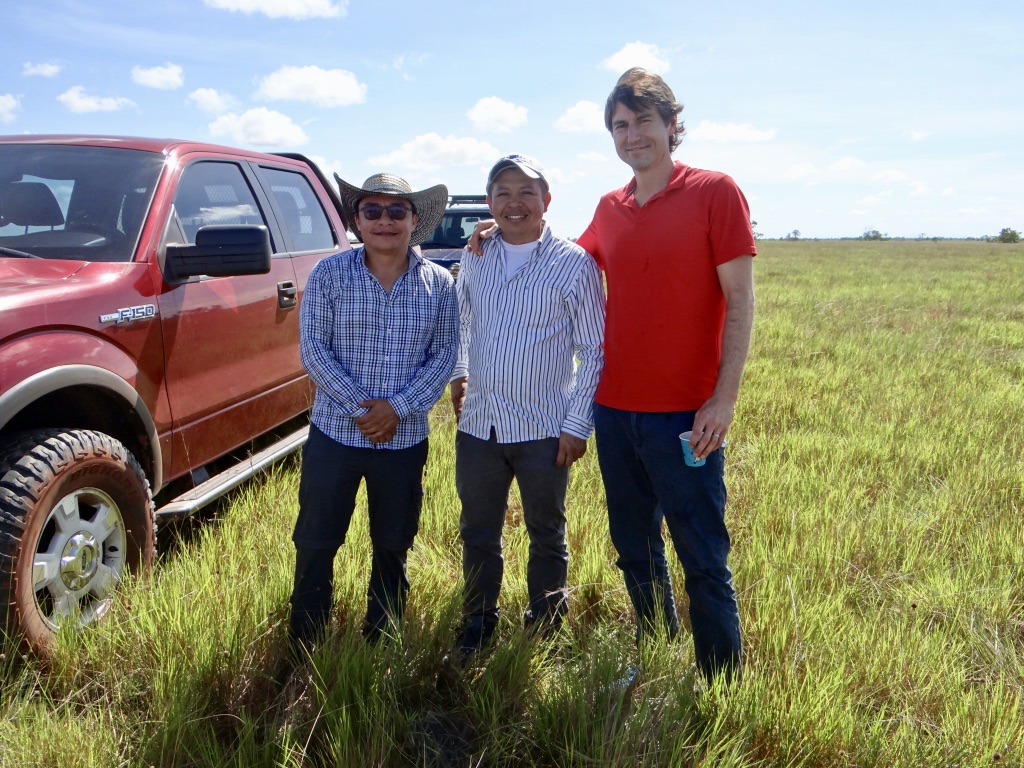
Left: Giovanni Porras, specialist in organic farming, centre: Diego Solano, Head of Operations, Right: Ueli Baruffol, Partner
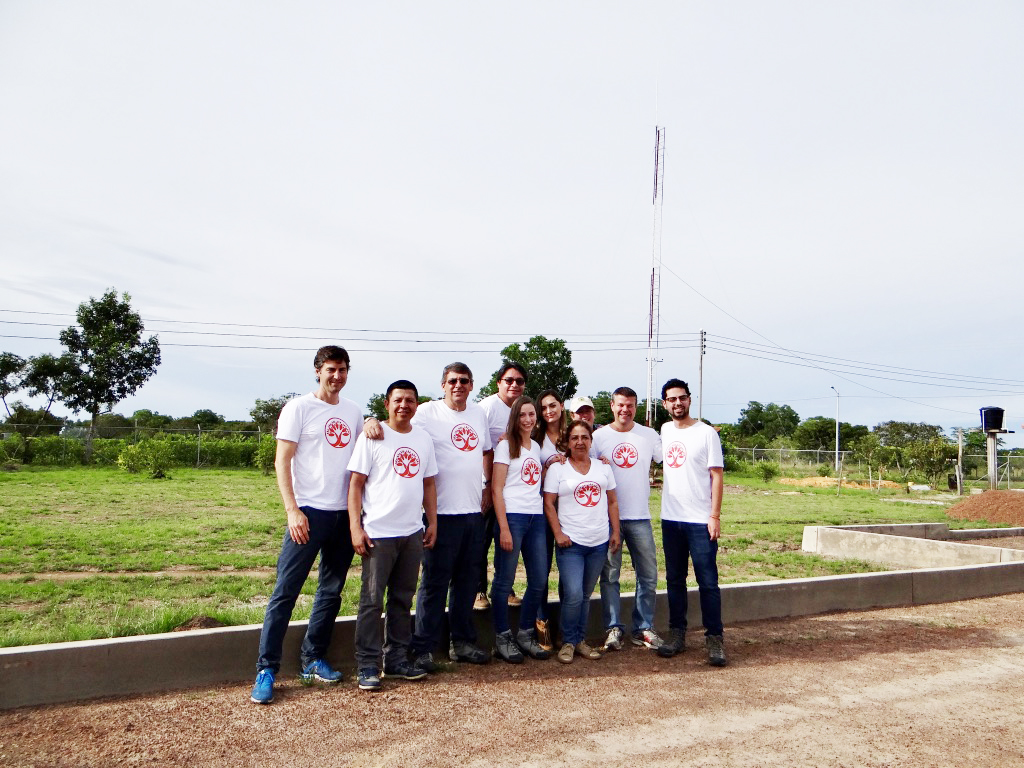
Kardianuts team, far right: Juan Pablo Muriel, founder
"Pakka": How exactly can the role of "Pakka" be described?
Ueli: Pakka is an investor and, as part of the Board of Directors, is also involved in the strategic discussions. We also provide our many years of experience in the development of nut value chains. And of course Pakka is also very interested in the products. We will sell these as raw materials or under the Pakka brand to end consumers.
"Pakka": How does "Kardianuts" differ from other projects in which "Pakka" is involved?
Ueli: Unlike other pakka projects, "Kardianuts" is a planting project. Cooperation with the small farmers only comes as a second step. This means that we are developing a model on a greenfield site, which we then want to expand as a basis for development in the region. We therefore enjoy full control in this early project phase, a factor that simplifies many things. At the same time, however, we are exposed to the full entrepreneurial risk.
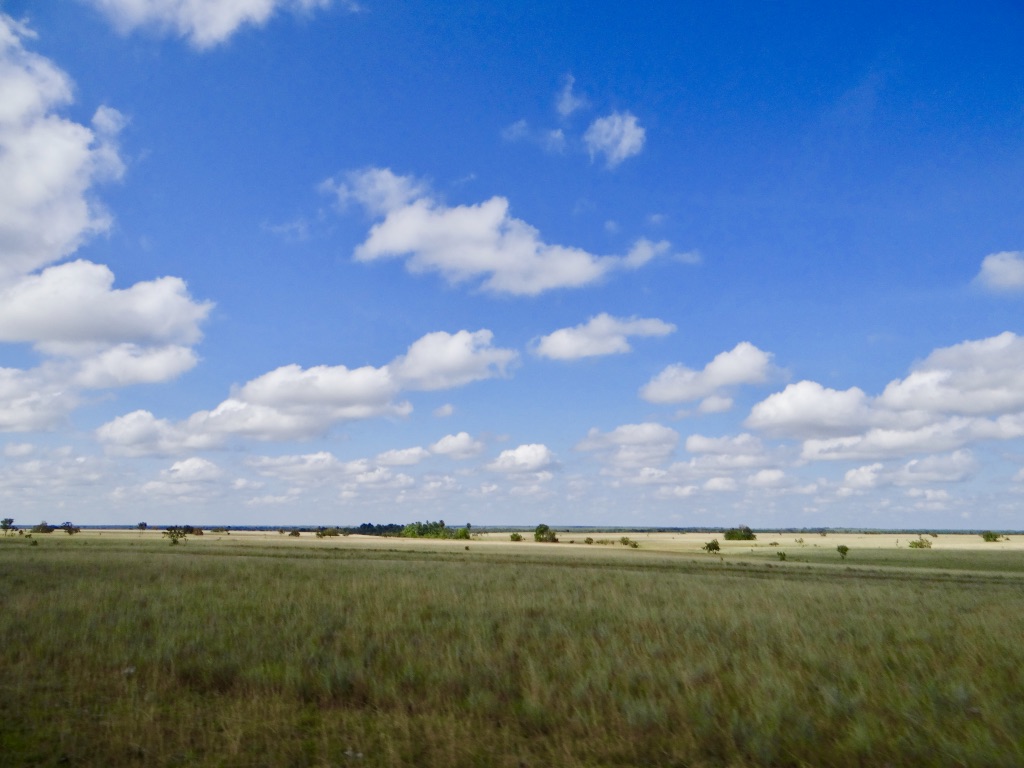
Future cultivation area for "Kardianuts
"Pakka": Why is this project being developed in this region of Colombia in particular?
Ueli: "Kardianuts" is located in a "forgotten" corner of Colombia. The state is barely present, poverty and unemployment are high. There is also an indigenous population group that has been completely neglected. The situation has been exacerbated by the political unrest in Venezuela. It is therefore important to find new ways to provide economic impetus in this structurally weak region characterised by poverty. We are convinced that "Kardianuts" can achieve an enormously high impact with a project of this kind. And finally, Colombia is also a matter close to my heart. My grandparents emigrated to Colombia and some of my family still live there.
"Pakka": Why is the cultivation of cashews particularly interesting for this region?
Ueli: There are various factors that speak in favour of growing cashews in Colombia. Firstly, the natural conditions for cashew cultivation are quite good. The soil is sandy-loamy and therefore unattractive for other agricultural products. However, the cashew tree is very undemanding, which is an advantage for this type of soil. In addition, the variety we use was developed specifically for this climate zone as part of a research project. Water is also not a problem; it rains relatively often in this region. At the same time, the sunlight is ideal. It should also be remembered that the cashew plant originally comes from South America and is therefore "native". This is another reason why we assume that cultivation with the right varieties and good care will produce good yields. The fact that no one has yet invested in larger plantations can really only be explained by the political situation [see info box below].
Secondly, the relatively high cashew price allows us to create good added value locally, provided we have the investment capital to invest in downstream processing. And thirdly, we have a very strong market on our doorstep in the USA. Of the 175,000 tonnes of cashews consumed by Americans in 2018, around 150,000 tonnes came from Vietnam, India and Africa. Producing these in Colombia, which is much closer, simply makes more sense.
The conditions for setting up cashew production are therefore promising, as is the opportunity to bring economic development to the region through extensive agriculture.
"Pakka": What are the biggest challenges for "Kardianuts"?
Ueli: Logistics costs are generally very high in Colombia, a circumstance that inhibits economic development in general. We are therefore planning to transport the products from "Kardianuts" by ship via the Orinoco River through Venezuela to the Atlantic coast [see info box below]. This allows us to keep export costs low. However, until the situation in Venezuela stabilises, transport via the Orinoco River is not an option. We therefore hope that there will be a system change in Venezuela in the next 3-4 years. If we had to export overland, this would have a major impact on the margin.
Another big issue is organic fertiliser to improve the soil. How we will produce or procure this has not yet been clarified. The construction of the processing plant will also be a major challenge. Especially because there is no stable power supply.
After all, finding qualified staff is always a major challenge in such rural, remote areas. Thanks to the collaboration with Juan Pablo, who works in timber production alongside his commitment to "Kardianuts", we were able to take on an existing team of qualified and motivated people. This is enormously important and a great pleasure.
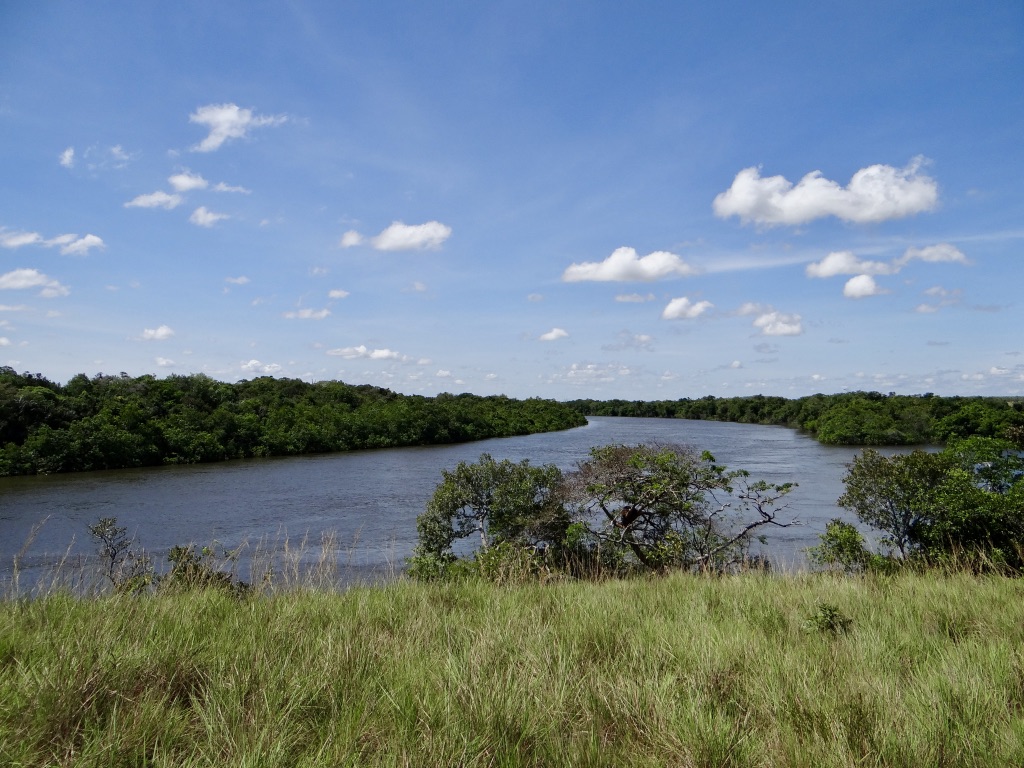
Orinoco River in the border region with Venezuela
"Pakka": What are the next steps?
Ueli: We are currently focussing on planting cashews and the first areas have already been cultivated. We are planting 250-400 hectares per year until we have reached 2500 hectares. As mentioned at the beginning, we are also carrying out tests with peanuts, pineapple and mango in order to develop a stable agroforestry system.
At the same time, we want to increase the number of cashew seedlings from 6000 to 50,000. This will enable us not only to cover our own needs, but also to sell seedlings to external parties. We want to generate our first income from the production of cashew seedlings.
We are also still working on the financing of "Kardianuts". We haven't quite reached our goal yet.
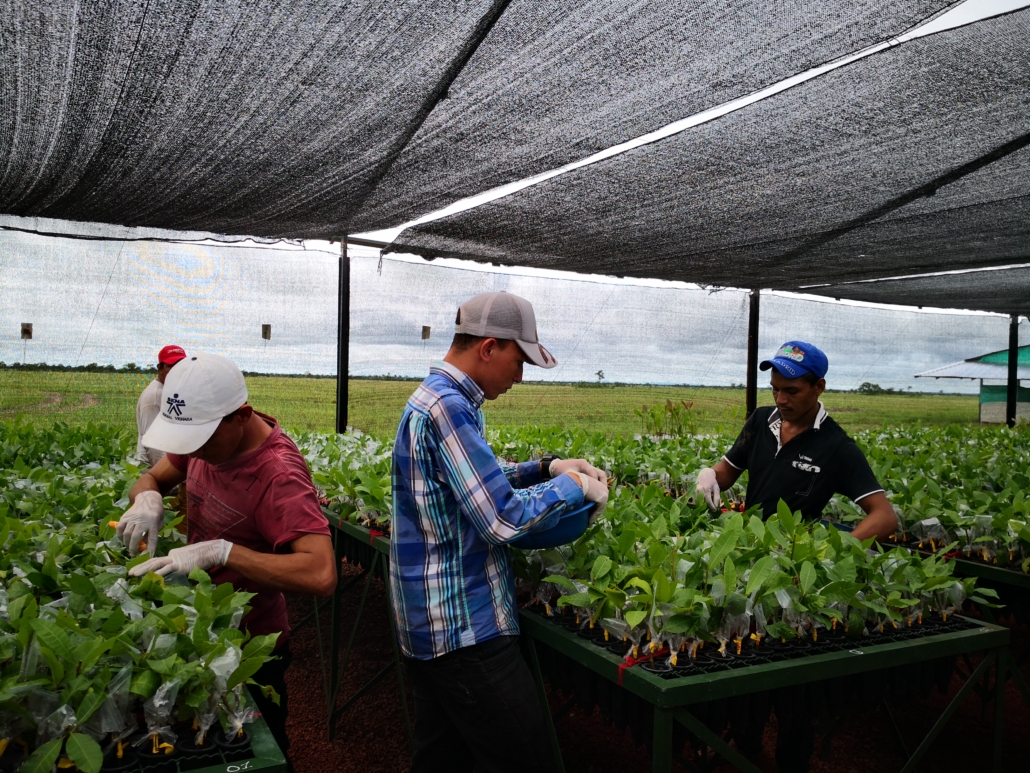
Tree nursery with cashew seedlings
"Pakka": When will we be able to enjoy the first cashews from "Kardianuts"?
Ueli: In 3 years we will probably have the first seeds, in 4-5 years a first larger harvest. So we still need a little patience ...
PROJECT "KARDIANUTS"
- Pakka Partner: since 2018
- Place: Colombia, Department of Vichada, 20 km from Puerto Carreño
- Goal: Establishment of a model farm in cooperation with local investors
- Number of employees: 15 on site, 4 management
- Area: 2500 hectares
- Products: Cashews (main fruit), peanuts, mangoes, pineapples
- Certifications: Organic & Fairtrade
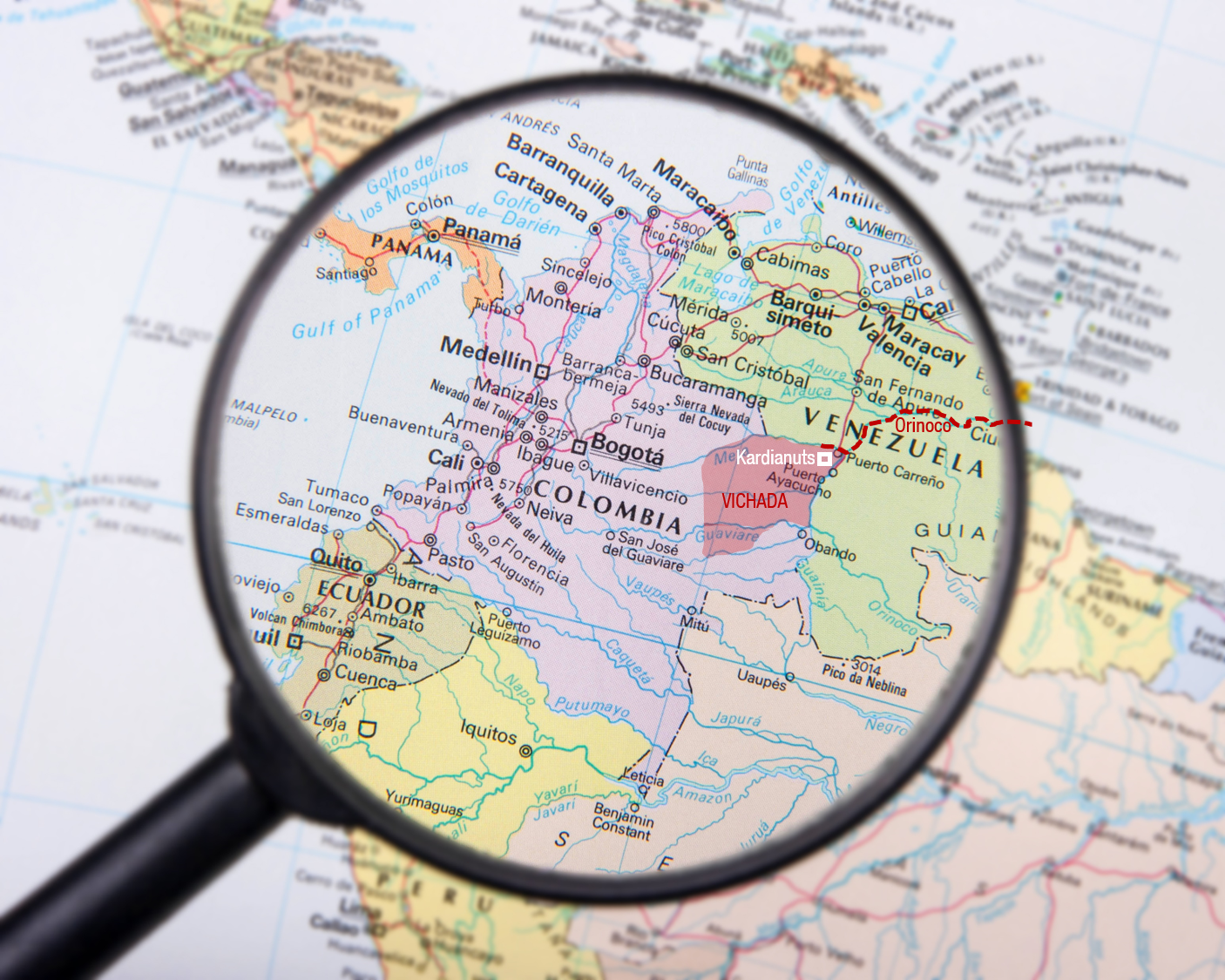
Export route by ship via the Orinoco through Venezuela to the Atlantic coast.
The cultivation areas of "Kardianuts" are located 20 kilometres east of Puerto Carreño in the Departamento de Vichada, an administrative region in eastern Colombia. It borders Venezuela to the north and east. With an area 2.5 times larger than that of Switzerland, Vichada has just 60,000 inhabitants. The region has been neglected by the Colombian state for years and struggles with unemployment and poverty. In the wake of the political unrest in Venezuela and the associated migration, the situation has become even worse for the region.